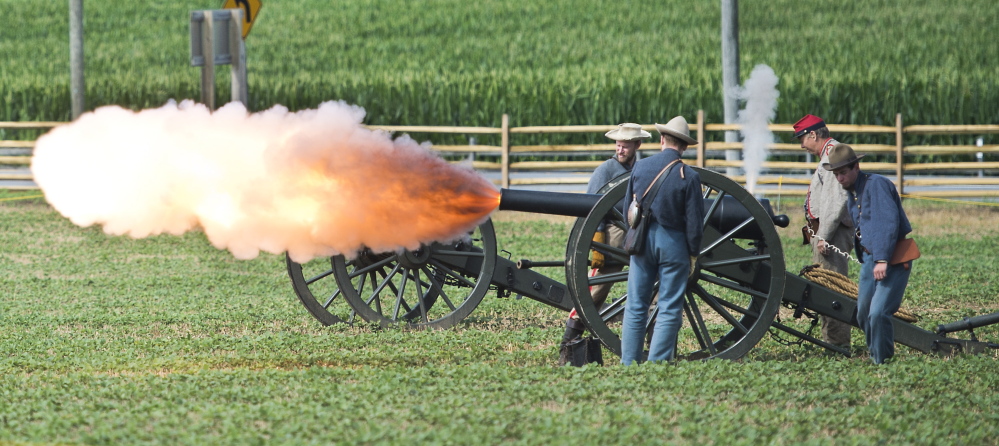CONCORD, N.H. — Seven score and 12 years ago, a Civil War soldier was packing on the freshman 15 – and then some.
In cheerful letters sent to his family back home in Hillsborough, Pvt. Willard Templeton describes at length the food he ate and the weight he gained as he traveled and fought with the 11th New Hampshire Regiment.
“My health has been very good. I have gained in flesh a good deal and never felt better in my life,” he wrote to his brother on Oct. 3, 1862.
Such descriptions came as a surprise to some of the Keene State College students who have been transcribing the 144 letters Templeton wrote between 1862 and July 1864, when he was killed at the Battle of the Crater in Virginia.
“When you think of the Civil War, you think of mud and blood and depression all around, but he was very upbeat,” said senior Samantha Lewis, who believes the young solider likely was trying to keep his family from worrying by essentially telling them, in her words, “I ate good food today, and I hung out with my friends, and it’s really pretty here.”
The letters were donated in the 1940s to the New Hampshire State Library, which has long wanted to digitize its collections but has lacked the resources. So Janet Eklund, administrator of library operations, was happy to arrange a temporary loan when history professor Graham Warder and college archivist Rodney Obien approached her about using the letters in Warder’s “Civil War Locally” seminar.
This spring and this summer, students scanned and transcribed 76 of the letters, and the work will continue next fall. While the family who donated the letters had transcribed them, the typed transcriptions had faded, and students found that they included numerous errors and omitted entire paragraphs, Eklund said.
“It’s pretty amazing,” she said. “This is one of our most interesting and unique collections on the Civil War here, and we never would have been able to give the public access to them if they hadn’t been digitized.”
Warder said the project was a perfect opportunity to use the new “Digital Commons” created by Keene State’s library as an online repository for research and scholarly work. But more importantly, it gave students a chance to work with primary historical documents. The letters gave students a sense of immediacy and a personal view of the war and spurred them to research on their own the people and places Templeton mentioned.
“They knew him, and they liked him, and they really cared about him,” Warder said.
Deciphering the letters was a challenge, given Templeton’s habit of writing increasingly smaller as he approached the end of a page and continuing sideways along the margins to squeeze more in, Warder said. Some students had not been taught cursive as children, he said, and even those who knew cursive, including Lewis, struggled at first with Templeton’s penmanship and unfamiliar vocabulary.
“He had very squiggly handwriting, and he was not always paying attention to spelling and grammar,” Lewis said. “I went to summer camp, and I understand when you’re writing a letter, you don’t think about that stuff and you’re just trying to get your message across, but occasionally he’d write a word in a completely weird way that made no sense.”
In addition to Templeton’s optimism (“The rebellion is now on its last legs,” he wrote in July 1863, nearly two years before the war’s end), Lewis said she was most struck by Templeton’s focus on food.
“I bought a pint of milk for my breakfast which went good with hard crackers,” he wrote in October 1862. “Our hard buns are real sweet and good to what the army used to have. We fared well at Fredrick after getting our cook tent up we had two meals of sweet potatoes and rice.”
After getting to know Templeton, Lewis and her classmates were sad to hear about how he died. One shouted “Spoiler!” when Warder delivered the news, prompting him to offer a gentle reminder. “You know, this is 150 years ago,” he said. “He definitely would be dead by now, anyway.”
Send questions/comments to the editors.



Comments are no longer available on this story